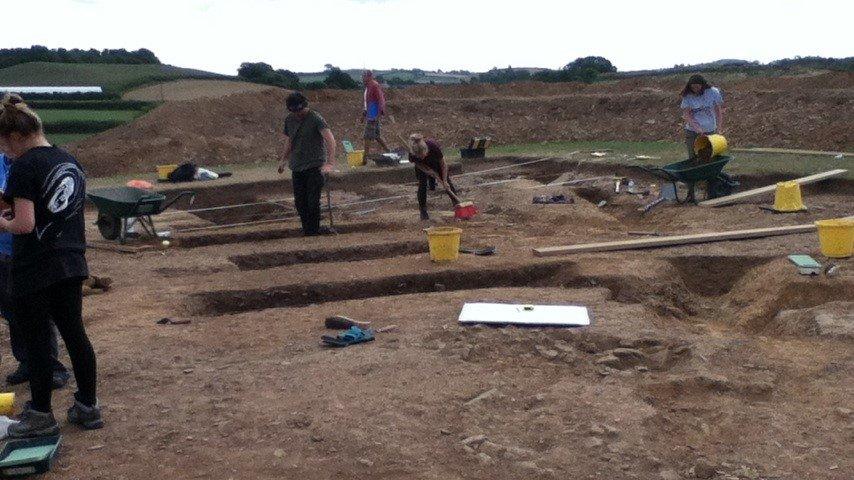Boundaries of Roman Empire redrawn after Devon archaeological dig
- Published
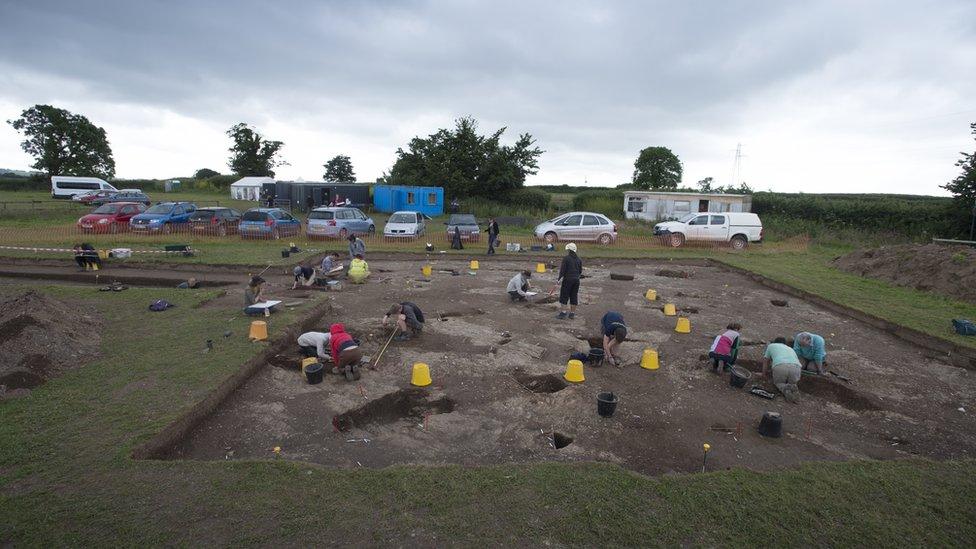
The Ipplepen Archaeological Project began its fieldwork for this year two weeks ago
The boundaries of the Roman Empire have been expanded following the discovery of Roman coins in a rural village.
Amateur metal detectorists Jim Wills and Dennis Hewings first unearthed the coins in Ipplepen, Devon, in 2009.
Now archaeologists have uncovered a Romano-British settlement which had trade links to the rest of the Empire.
Dr Sam Moorhead, from the British Museum, said the site raised "a whole series of new questions" about Roman Devon.
The Ipplepen Archaeological Project, which began its 2016 fieldwork just two weeks ago, has involved the University of Exeter, the Portable Antiquities Scheme run by the British Museum, Devon County Council and Cotswold Archaeology.
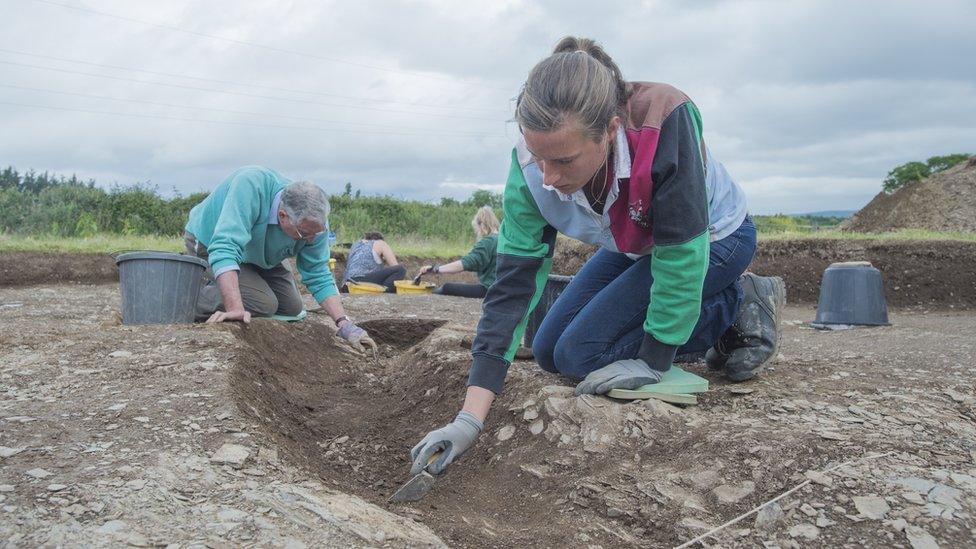
Archaeologists have unearthed Roman pottery which was imported to Britain from the rest of the Empire
Until now there was little evidence of the Romans outside of Exeter, which is 20 miles north-east of Ipplepen.
It had been thought that rural areas had not been particularly affected by Roman influence, a spokesperson for the University of Exeter said.
However, the discovery of "significant amounts" of Roman pottery made in other parts of the Empire and imported into Britain has demonstrated the rural site's connections to the rest of the Roman world.
'Puzzling' settlement
"The presence of these kinds of vessels demonstrates that the people living here... adopted Romanised ways of eating and drinking" including "a taste for Mediterranean products such as wine and olives", Danielle Wootton, the Devon finds liaison officer for the Portable Antiquities Scheme, said.
But the site was "puzzling" when compared to other known settlements in neighbouring counties such as Somerset, where a greater amount of coins, brooches and pottery had been found, she said.
"We are wondering whether the Dumnonii, the tribe who lived in the area now known as Devon, still retained their traditional identity rather than becoming entirely Romanised", Ms Wootton said.
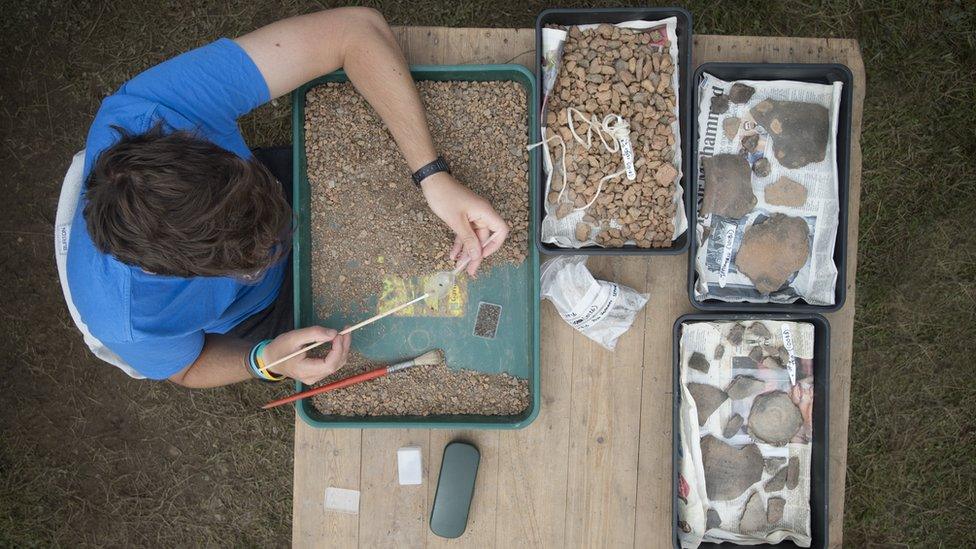
The pottery has been discovered at a site in the village of Ipplepen, in Devon
In previous years the team have discovered a Roman road, as well as pot holes which had been repaired.
"Until recently, who would have thought that Ipplepen village was once 'plugged in' to the Roman empire?", Ms Wootton added.
- Published9 February 2015
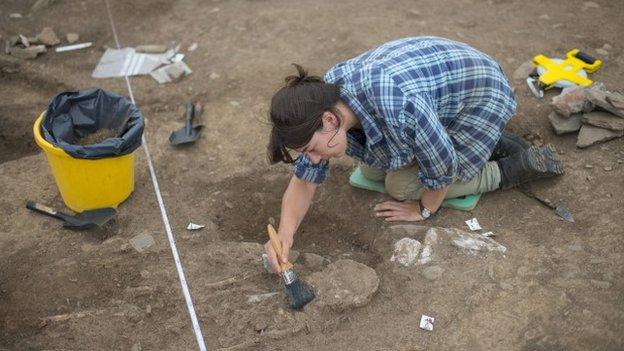
- Published17 August 2013
